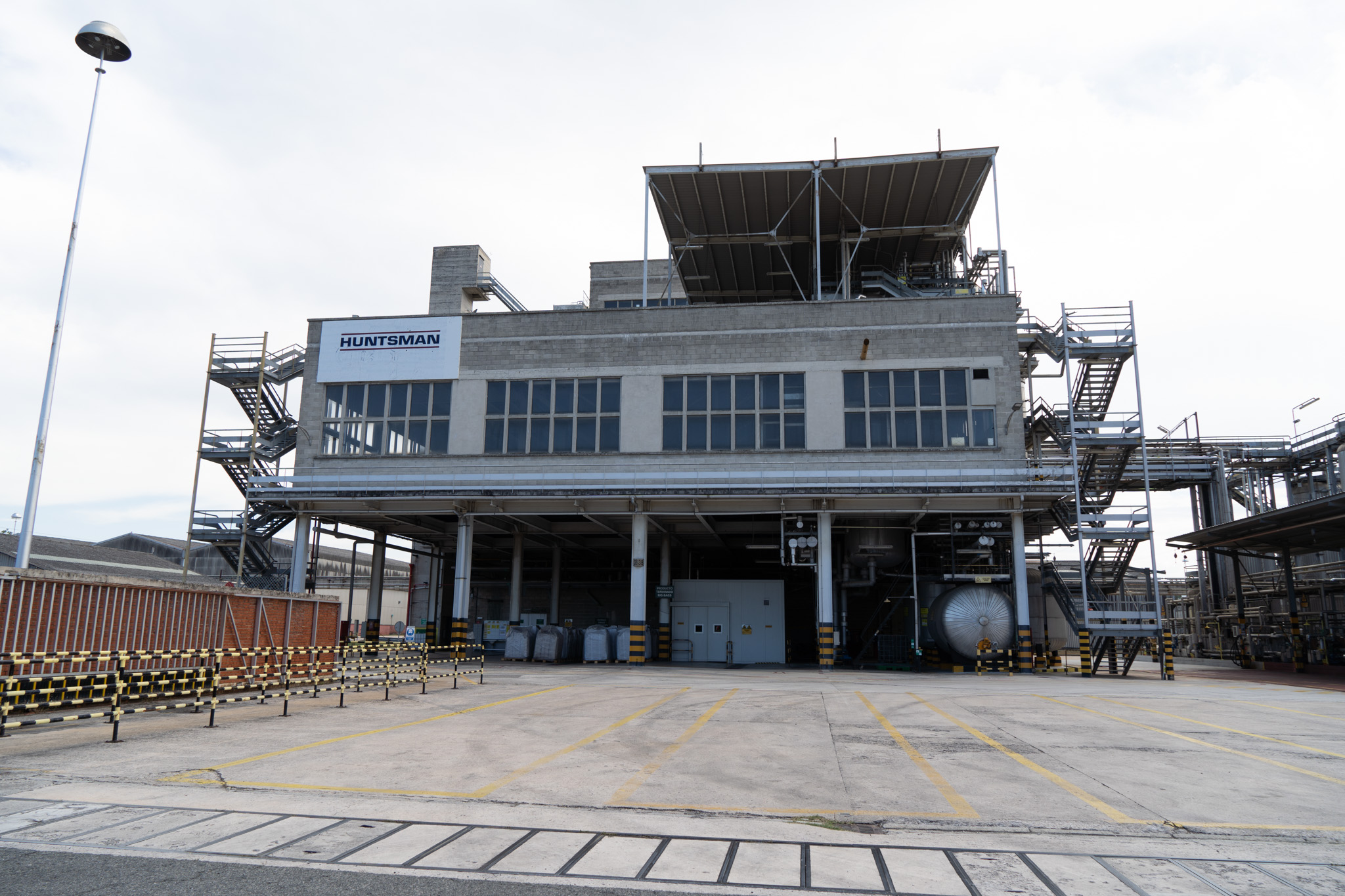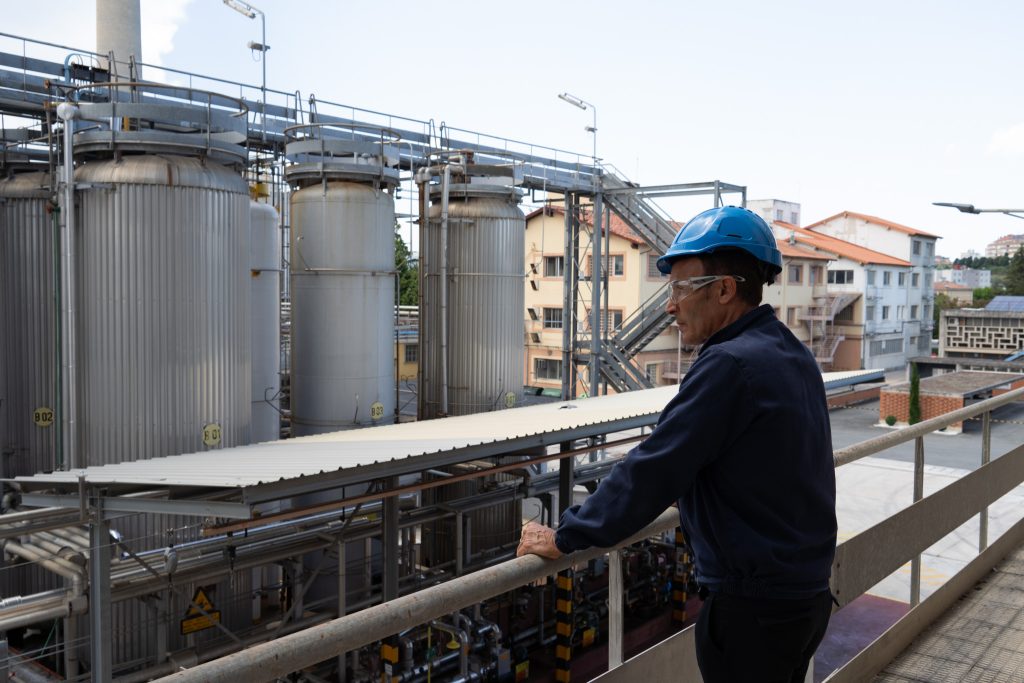
Hunstman has been linked to Navarra for 82 years. It went through many situations and acquisitions until, just two decades ago, it was acquired by the American chemical company Huntsman. Precisely, the landing of the latter in the region brought with it a series of values (safety at work, honesty, integrity, respect and responsibility) that define and differentiate the activity of this company based in Pamplona.
Our intention is to continue growing in high-value strategic products. What we are considering is changing our current product portfolio to include more low-volume and higher value-added references to make the most of our infrastructure.
This is where the new development we are preparing for Aerospace comes in, a compound that improves combustion efficiency in engines. It is a special chemical proposal, but we intend to make it here, at our headquarters in Pamplona.
For our company, having investments with a quick return (such as the one we have planned with the development I have just mentioned) is totally justified. And that already shows us the path we want to follow.
Indeed, our goal is to play an important role within the company in everything that has to do with strategic value-added products. That is to say, to be able to opt for those medium-sized projects with a quick return that are generated within our corporation and that, in addition, serve as a complement to what we are already doing and that is feeding us.
To achieve this purpose, we are relying on the Multinationals Board promoted by Fundación Industrial Navarra. In it, through collaboration between companies that are in a similar situation, we have found some keys so that we can influence our multinational.
Also, and in parallel, we have an external consultant who helps us in the evaluation of the numbers and resources we need to achieve the position we want to have in our multinational. Specifically, thanks to his work, we can establish a “mapping” of our delegation with weaknesses, threats, opportunities and strengths based on processes, continuous improvement and the permanent search for maximum efficiency. The results obtained from this study are what we communicate to our head office to attract their attention and achieve the matching of their vision with ours.
When I arrived, 30 years ago, the workforce was larger. The problem was that there was a lot of production of what we know as “basic resins”. Little by little we have been abandoning those lines of work for others of lower volume but greater specialization.
This process, together with digitalization, has led to the automation of production. Where there used to be shifts of up to 21 people, now three are enough to control everything. In total, we now have around 60 employees, of whom 35 are more operationally oriented. As far as turnover is concerned, it is centralized at European level, but we could estimate a figure of around 25 million euros.
Of course. Because, in addition, I know from my own experience that where our activity is established, for example in Tarragona, Huelva or Barcelona, it plays a key role as it becomes a pole of attraction for new businesses and companies. It is something that Navarra should study and bet on, especially given the opportunities in terms of land offered by the various municipal parks, especially those located in the Ribera.
I recently met the director of a higher vocational training school and he confirmed that, by the time they finish, eight out of ten students already have a company to go to and within six months they are all employed. The same thing happens at the engineering level.
In this context, there is nothing to object to, especially for us who, being a multinational, have an additional advantage: we are very attractive because you can start working here and, during your career, go to other destinations and get to know other realities. But, apart from our reality, I believe that there is a pool of talent and that we should improve communication between the business and educational worlds to facilitate this transition and that companies in Navarra can take advantage of and benefit as much as possible from the talent generated in our region. We have to change.
Navarra is, without a doubt, an attractive area at a national level. Without going any further, I know of cases of companies that have come here because it is a good place to live and, believe me, that attracts, together with the salary, the tranquility, the level of services or its universities. Navarra, therefore, has enough resources to attract new investments, although this should not prevent us from continuing to work to improve because there is always something left to do.

